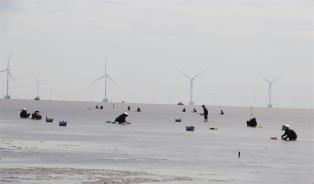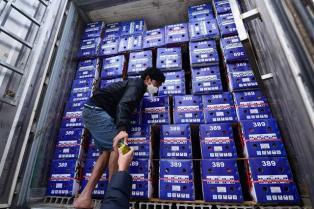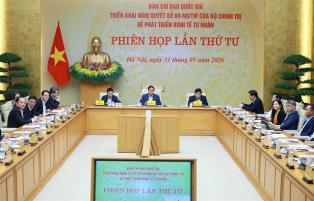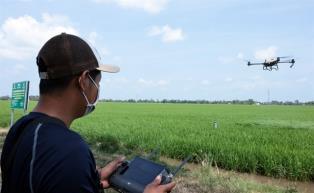Bananas are becoming a rising star in Việt Nam’s fruit export sector, now covering approximately 161,000ha hectares out of the country’s more than 1.3 million hectares of fruit-growing land.

HÀ NỘI — Việt Nam's banana industry has the potential to achieve an export value of US$4 billion, according to Phạm Quốc Liêm, Chairman of U&I Agriculture Corporation (Unifarm).
He noted that this figure would translate to a minimum production value of US$20,000 per hectare, nearly 10 times higher than the current average.
Bananas are becoming a rising star in Việt Nam’s fruit export sector, now covering approximately 161,000 hectares of the country’s more than 1.3 million hectares of fruit-growing land. In 2024 alone, banana exports brought in nearly $380 million, securing Việt Nam a spot among the world’s top 10 banana-exporting nations.
Vietnamese bananas are now present in major international markets, including China, South Korea, Japan, Australia, Canada, the EU and the US, demonstrating both their quality and competitiveness.
As Việt Nam’s durian exports, once a billion-dollar commodity, face headwinds in the first half of 2025 and dragon fruit export revenue falls below the $1 billion mark, the agricultural sector is urgently seeking new growth drivers.
With strong export potential and high adaptability to various climates, bananas are increasingly viewed as the next key pillar of Việt Nam’s fruit industry, experts have said.
In support of the ambitious goal of turning bananas into a major export commodity, Liêm told thoibaonganhang.vn that Unifarm will continue to uphold a unified and rigorous set of quality standards across its entire production chain - from seed selection and cultivation to harvesting and traceability.
Rather than adapting to each market’s certification standards, such as VietGAP or GlobalGAP, Unifarm is implementing a standardised, comprehensive process. This approach, Liêm said, ensures consistency, scalability, and long-term sustainability.
Unifarm’s vision, he added, extends beyond profitability. The company is committed to working alongside Việt Nam’s agricultural sector and farmers to build a globally recognised and reputable Vietnamese banana brand.
Restructuring for sustainable development

Despite the growing potential of Việt Nam’s fruit sector, including bananas, Deputy Minister of Agriculture and Environment Trần Thanh Nam said comprehensive restructuring is essential to ensure its long-term sustainability.
Key priorities include the development of concentrated raw material zones linked with purchasing enterprises, improvements in crop varieties and farming techniques, and reductions in input costs.
Modernising processing facilities, strengthening logistics infrastructure, building strong brand identities, and promoting official export channels should also be included, he said.
Nam also highlighted the need to reorganise the entire value chain, underscoring the critical role of businesses and cooperatives, not only in production but also in shaping market strategy and advancing the processing industry.
Võ Quan Huy, dubbed the ‘Banana King’, director of Huy Long An Company, said that in an increasingly competitive fresh banana market, developing processed banana products and by-products is essential for Việt Nam to elevate its banana industry and reduce reliance on a few traditional export markets.
Currently, the majority of Vietnamese bananas are exported fresh, primarily to China, South Korea, Japan, and some Middle Eastern countries. Meanwhile, higher-value products such as dried bananas, banana chips, banana wine, banana cakes, and green banana powder are still produced only on a small and fragmented scale, Huy spoke to thoibaonganhang.vn.
To tap into this potential, Huy proposed policies prioritising the development of the banana processing industry, including support for businesses in accessing capital, technology, and both domestic and international markets. He also emphasised the need for research and technology transfer programs to fully utilise banana waste and by-products, currently often discarded, causing waste and environmental pollution.
Nguyễn Như Cương, deputy director of the Department of Science and Technology under the Ministry of Agriculture and Environment, said that effective management of banana varieties remains a critical issue for Việt Nam’s banana sector. Although bananas are classified among the country’s main crops, alongside rice, corn, coffee, oranges and grapefruit, the number of businesses registering for variety testing remains very low.
Cương said the ministry is currently considering limiting official variety registration to just two primary crops - rice and corn - while other crops, including bananas, would move to a self-declaration system. Under this model, businesses would bear full legal responsibility for the quality of their seed varieties.
This shift calls on banana producers to enhance their research and variety selection capabilities, while also increasing awareness of intellectual property rights related to seed production - a vital but often overlooked factor in the competitive market.— VNS





